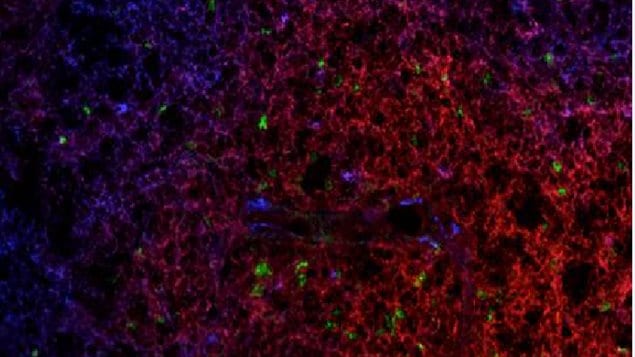It was one of those tragic cases in medicine.
A newly born child, just weeks old, had a severe auto-immune condition that could not be treated and which led irrevocably to his death.
With just a few drops of the child’s blood, researchers led by a team in McGill University and the Research Institute-McGill University Health Centre (RI-MUHC) in Montreal, have painstakingly discovered the cause in a subset of so-called T-cells, and have created a solution that has major disease treatment implications.
Dr. Ciriaco Piccirillo led an international research team with input from the USA and Japan. He is an immunologist and senior scientist with the “Infectious Diseases and Immunity in Global Health Program” at the Research Institute-McGill University Health Centre (RI-MUHC), and a Professor of Immunology and Medicine at McGill University. He is also the Director of the newly created Centre of Excellence in Translational Immunology (CETI) at the RI-MUHC.
Listen
The baby boy died in 2009 of a rare and often fatal inherited genetic immune disorder called IPEX. The case involved the child’s T-cells, and specifically the Treg cell, the immunosuppressive cells of the immune system.
These latter are a special kind of white blood cells or lymphocytes that regulate the body’s auto-immune response. They prevent other immune cells from attacking the body’s own tissues, as well as controlling immune responses against microbes and other non-pathogenic agents, such as pollen, dust or benign food groups. This is an important “self-check” built into the immune system to prevent excessive reaction.
When the immune response is not controlled it can cause damage to the body in diseases such as rheumatoid arthritis, Lupus, and Crohn’s disease as well as broader conditions such as asthma, allergies and cancer.

Through meticulous molecular research and availability of new highly sophisticated technology at the RI-MUHC, the team was able to determine a defect in a particular gene in the Treg cell which prevented it from properly acting in its regulatory role in dampening the immune system response.
Certain genes, but especially the FOXP3 gene are responsible for “programming” so-to-speak a T-cell to become a Treg cell.

What the team found from the baby’s blood was a rare mutation of the FOXP3 gene which negatively impacted its capacity to promote Treg cell development and function in humans.
After the intense research to detect the genetic defect in the specific FOXP3 gene, they developed a drug which appears able to correct the genetic defect resulting in an almost completely normally functioning Treg cell.
The team’s research was published in the online journal “Science-Immunology” under the title “Suppression by human FOXP3+ regulatory T cells requires FOXP3-TIP60 interactions” (abstract HERE)

Further, while this should work in those rare patients with IPEX, professor Piccirillo says the team in now working on improving the drug to bolster its effects on the FOXP3 gene and developing Treg cells in other inflammatory and autoimmune diseases.
He says this likely will have far greater treatment possibilities in relation to a number of auto-immune diseases which are typically very difficult to treat.
The study was funded by the Canadian Institutes of Health Research, Canada Research Chair Program, National Institutes of Health and the Abramson Family Cancer Research Institute.






For reasons beyond our control, and for an undetermined period of time, our comment section is now closed. However, our social networks remain open to your contributions.